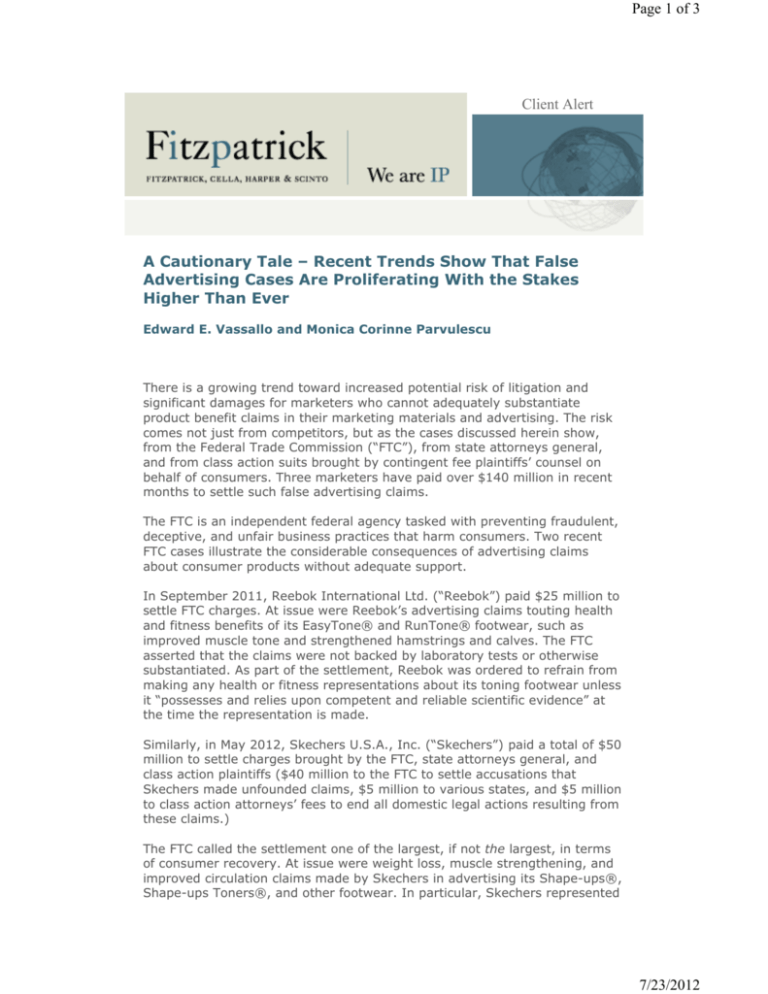
Page 1 of 3
Client Alert
A Cautionary Tale – Recent Trends Show That False
Advertising Cases Are Proliferating With the Stakes
Higher Than Ever
Edward E. Vassallo and Monica Corinne Parvulescu
There is a growing trend toward increased potential risk of litigation and
significant damages for marketers who cannot adequately substantiate
product benefit claims in their marketing materials and advertising. The risk
comes not just from competitors, but as the cases discussed herein show,
from the Federal Trade Commission (“FTC”), from state attorneys general,
and from class action suits brought by contingent fee plaintiffs’ counsel on
behalf of consumers. Three marketers have paid over $140 million in recent
months to settle such false advertising claims.
The FTC is an independent federal agency tasked with preventing fraudulent,
deceptive, and unfair business practices that harm consumers. Two recent
FTC cases illustrate the considerable consequences of advertising claims
about consumer products without adequate support.
In September 2011, Reebok International Ltd. (“Reebok”) paid $25 million to
settle FTC charges. At issue were Reebok’s advertising claims touting health
and fitness benefits of its EasyTone® and RunTone® footwear, such as
improved muscle tone and strengthened hamstrings and calves. The FTC
asserted that the claims were not backed by laboratory tests or otherwise
substantiated. As part of the settlement, Reebok was ordered to refrain from
making any health or fitness representations about its toning footwear unless
it “possesses and relies upon competent and reliable scientific evidence” at
the time the representation is made.
Similarly, in May 2012, Skechers U.S.A., Inc. (“Skechers”) paid a total of $50
million to settle charges brought by the FTC, state attorneys general, and
class action plaintiffs ($40 million to the FTC to settle accusations that
Skechers made unfounded claims, $5 million to various states, and $5 million
to class action attorneys’ fees to end all domestic legal actions resulting from
these claims.)
The FTC called the settlement one of the largest, if not the largest, in terms
of consumer recovery. At issue were weight loss, muscle strengthening, and
improved circulation claims made by Skechers in advertising its Shape-ups®,
Shape-ups Toners®, and other footwear. In particular, Skechers represented
7/23/2012
Page 2 of 3
that its clinical studies were “independent case studies.” The FTC, however,
found that the studies at issue were conducted by a compensated
chiropractor who was married to a Skechers senior vice president of
marketing, that the studies were defective, and that the advertised test
results were either cherry-picked or altered to support Skechers’ claims. The
FTC also found that some of Skechers’ efficacy claims were unsubstantiated,
as no product-specific studies were conducted to support these claims.
Pursuant to the settlement order, Skechers is now prohibited from making
any health, weight loss, or fitness-related benefit claims for its toning
footwear unless supported by scientific evidence (the parameters of which
are strictly defined in the settlement order), and must pay the FTC a $40
million penalty.
The FTC is not the only one policing advertising claims – contingent fee
plaintiffs’ counsel are also taking note and filing class action suits, exposing
companies to further increased liability. For instance, in February 2010,
Dannon Co., Inc. (“Dannon”) paid $45 million in damages to settle a
consumer class action false advertising lawsuit brought against efficacy
claims for Dannon’s Activia® yogurt and DanActive® probiotic dairy drink.
Dannon’s marketing campaign claimed that its proprietary bacteria strains
provided its products with “clinically and scientifically proven” health benefits
absent from other yogurt products, such as strengthening consumers’
immune systems and regulating digestion. The class action complaint
asserted that these representations persuaded consumers to pay a 30% price
premium over other yogurt products, which was a key element in the
damages claim. As part of the settlement, Dannon was ordered to remove
the words “clinically” and “scientifically proven” from its product labels and
ads in reference to claims that Activia® helps regulate the digestive system,
to remove the word “immunity” from DanActive® labels and ads, and to
include a qualifier to the claims that DanActive® “helps strengthen your
body’s defenses” or “helps support the immune system.” Later that same
year, Dannon paid an additional $21 million to settle state and FTC
investigations into these and additional advertising claims related to the
same products.
Another consumer class action suit was brought against Pom Wonderful LLC
(“Pom”) over so-called “bulletproof” representations made in connection with
the marketing of its pomegranate juices, juice blends, teas, and extracts,
including benefits such as the prevention, mitigation, and/or treatment of
prostate cancer, cardiovascular disease, and other age-related medical
conditions. Pom continued making these claims despite 2005 and 2006
determinations by the National Advertising Division of the Council of Better
Business Bureaus and a 2009 determination by the U.K.’s Advertising
Standards Authority that such claims were unsubstantiated and “misleadingly
exaggerated” health benefits, and despite a 2010 warning letter from the
U.S. Food and Drug Administration that Pom’s claims were in serious violation
of the Federal Food, Drug, and Cosmetic Act. While the class action suit is
now part of an on-going multi-district litigation, it will be interesting to see
how it plays out, especially in view of a recent decision by an administrative
law judge upholding much of an FTC complaint alleging that Pom violated
federal law by making deceptive claims related to these products.
In addition to health benefit claims, an increasingly contentious area lies with
marketing products as “all natural.” Late last year, a class action lawsuit was
7/23/2012
Page 3 of 3
filed against the makers of Skinnygirl® Margarita, Beam Global Spirits &
Wine, Inc. (“Beam”). Beam’s bottled margarita product is promoted as a
healthier alternative to other bottled cocktails, supposedly containing only
agave nectar and tequila, which led Beam to characterize the product as “all
natural” and “no preservatives.” However, the class action complaint alleges
that Beam’s product contains a potentially carcinogenic synthetic preservative
that is not indicated on any product labeling, and that as much as 49% of the
bottled product contains a lower quality tequila by-product called mixto,
despite the “100% blue agave tequila” claims. Beam has since removed the
“all natural” and the “100%” claims from their advertising, but the class
action suit is still pending.
As of last month, 20+ consumer lawsuits have been filed against Tropicana
Products, Inc. (“Tropicana”) in another “all natural” dispute. These suits
allege that Tropicana’s “100% pure and natural” claims are false and
misleading and that Tropicana’s orange juice is actually highly processed and
uses “flavor packs” (aromas and flavoring created by chemists from
processed orange oils and essence) to increase its shelf life.
While false advertising suits are not breaking news, these cases and others
highlight an increased risk of suit and an increase in the potential liability
faced by companies making claims found to be misleading, unsubstantiated,
or spurious. The FTC appears to be imposing a higher standard of
substantiation for health benefit claims, but the risk goes beyond such
claims. Not exercising caution and diligence in vetting advertisement claims
can raise considerable potential consequences, including exposure to multiple
suits for the same claims and significant monetary damages.
If you have any comments or questions, please contact Edward Vassallo
(evassallo@fchs.com) or Monica Parvulescu (mparvulescu@fchs.com).
NEW YORK
1290 Avenue of the Americas
New York, NY 10104-3800
212.218.2100
WASHINGTON
975 F Street, NW
Washington, DC 20004-1462
202.530.1010
CALIFORNIA
650 Town Center Drive,
Suite 1600
Costa Mesa, CA 92626-7130
714.540.8700
© Copyright 2012 Fitzpatrick, Cella, Harper & Scinto. All Rights Reserved.
Attorney Advertising. Prior results do not guarantee a similar outcome. | Disclaimer
To unsubscribe or change subscription options please click here
7/23/2012


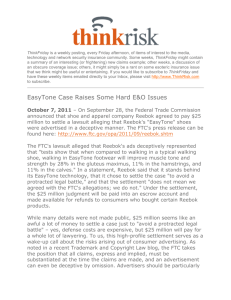
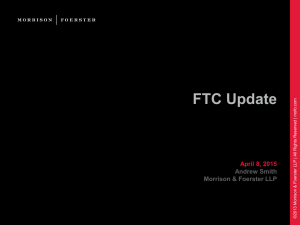
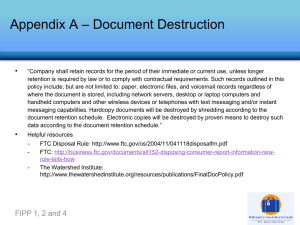
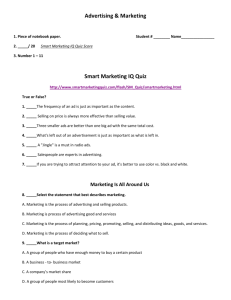
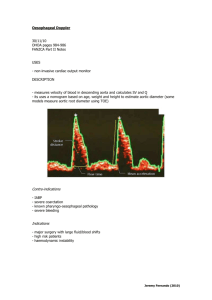
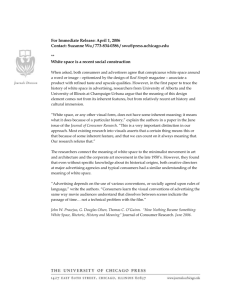
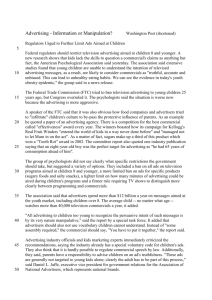
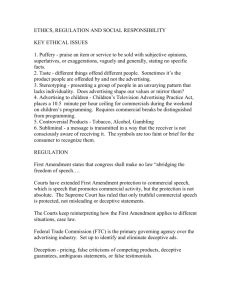
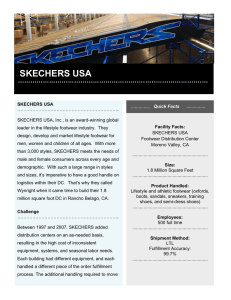
![Sketcher's_Crisis_Communication_Plan[1]](http://s3.studylib.net/store/data/009702267_1-f6353d5900cdb4b5ef398503bb27e44b-300x300.png)